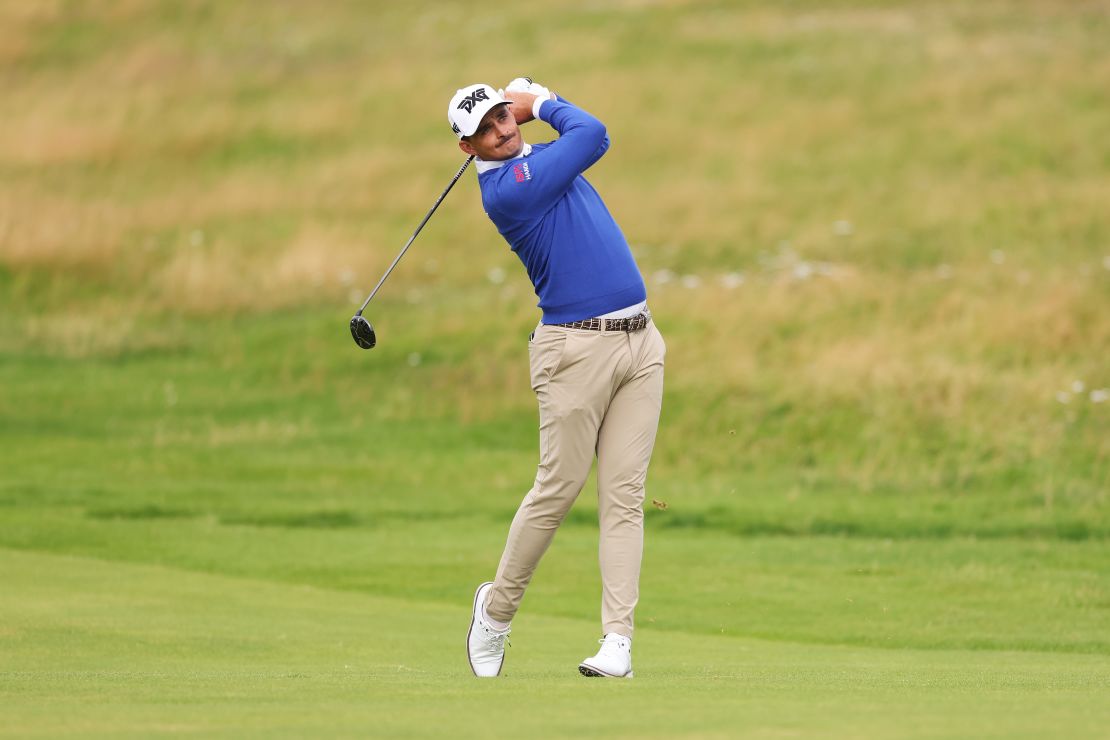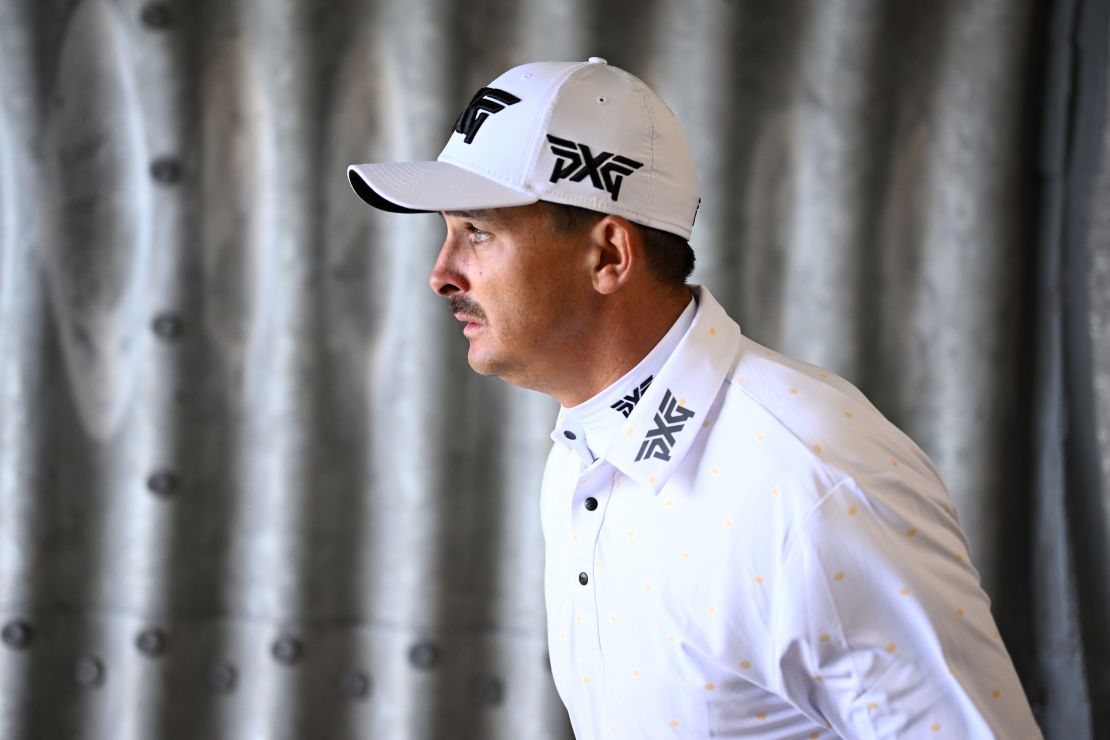Blustering weather and a punishing coastal links course have combined to serve up the ultimate test for the game’s best golfers at this week’s Open Championship.
And while world No. 68 Christiaan Bezuidenhout may not boast a ranking to rival Scottie Scheffler or Rory McIlroy, he is as well equipped as any in the field to stay the course.
A strong start has put the South African in the mix heading into the weekend of the 153rd edition of the major at Royal Portrush, Northern Ireland, a far cry from the beginning of the 31-year-old’s own life.
At the age of two, while playing with friends in the street, Bezuidenhout drank from a bottle of Coke that had been emptied and replaced with rat poison.
“As a result of that naivety, I almost died,” he wrote in a blog for the European Tour in 2019.
“The hospital had to pump my whole stomach to get rid of all the poison, but the poison affected the whole nervous system in my body.”

One long-term consequence was the development of a stutter, which in turn led to childhood battles with anxiety and depression as Bezuidenhout – growing up in the small farming town of Delmas, 58 miles east of Johannesburg – withdrew from “anything and everyone.”
“I was basically just living in my own world because I was always scared of having to engage in conversation,” he said.
“Unfortunately, there is nothing you can do to get rid of a stammer – you just have to learn to adapt and work with the stammer to control it the best you can.”
His blossoming golf talent saw junior trophies accumulate, but that too brought its challenges. Seeking to combat the “dread” of public speaking necessitated by winning a tournament, a 14-year-old Bezuidenhout was prescribed beta-blockers to tackle anxiety.
He used the medication throughout his amateur career across the next seven years, but while competing in the Amateur Championship at Royal Portrush in 2014, Bezuidenhout was told he had failed a drugs test and had been suspended for two years as a result.

The 20-year-old had declared to tournament organizers in advance that he was taking beta-blockers for his stutter. While the sanction was later reduced to nine months after an appeal, Bezuidenhout was left “inconsolable.”
“The worst part of it all were all the stories that came out from people in the golf industry and supposed close friends back home,” he wrote.
“I was accused of using it to better my performances, which really hurt me and my family. A lot of nasty things were said and I was known as the guy banned from golf for a drug-related incident.
“I was aware of how labels like that are hard to shake off and I reached a very low point in my life.”
A storied history
Yet since coming back and turning professional in 2015, Bezuidenhout’s trajectory has been overwhelmingly upwards, culminating in a superb opening round four-under 67 that earned him an early share of the lead.
“I’ve been putting a lot of work in on my swing,” he told reporters on his return to the clubhouse Thursday.
“I’ve been going through some swing changes and stuff – it’s nice to see that paying off.”

He arrived on the Causeway Coast a three-time European Tour winner, his place in the field for a 20th career major start comfortably secured by his participation in the PGA Tour’s season-ending Tour Championship.
Though still chasing a first win on the sport’s top circuit, he has, bizarrely, cashed a winner’s check, which he received for his runner-up finish at the American Express last year as victor Nick Dunlap was unable to claim prize money due to his amateur status.
Bezuidenhout is pacing to challenge his career-best major performance, a tied-12th finish at the US Open last month, despite a second round two-over 73 on Friday that saw him lose ground on the leading pack.
A weekend charge could add to his country’s storied history at The Open, with South African golfers lifting the Claret Jug 10 times, though not on the two previous occasions that Portrush hosted the major.
Bobby Locke won four times during a dominant stretch in the 1950s, before Gary Player notched three victories of his own. A 28-year barren run ensued before Ernie Els triumphed in 2002, “The Big Easy” adding another in 2012 after compatriot Louis Oosthuizen had powered to glory at St. Andrews two years prior.
CNN’s Ben Church contributed to this report.
